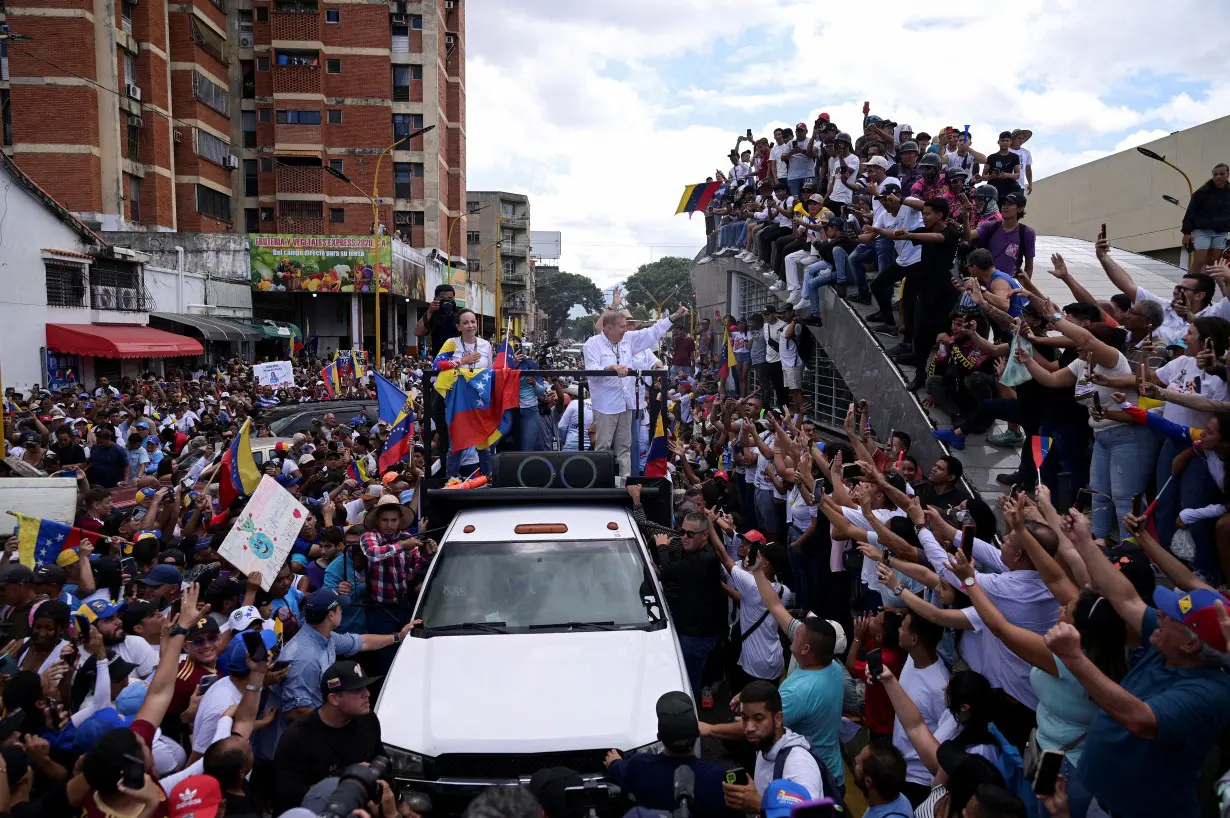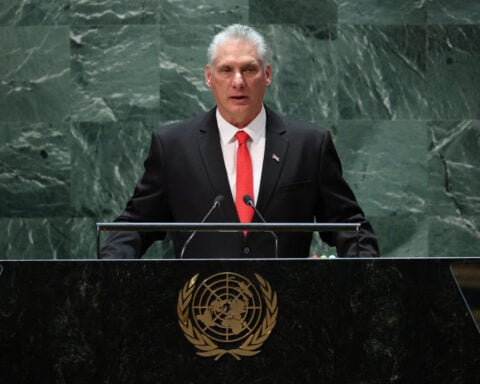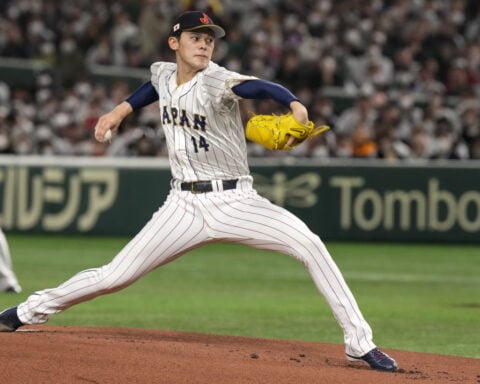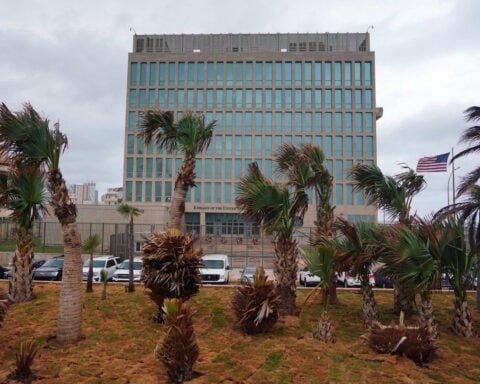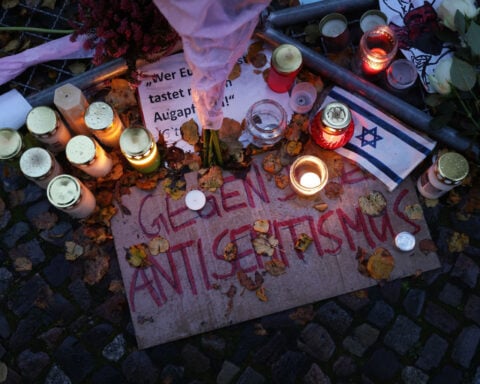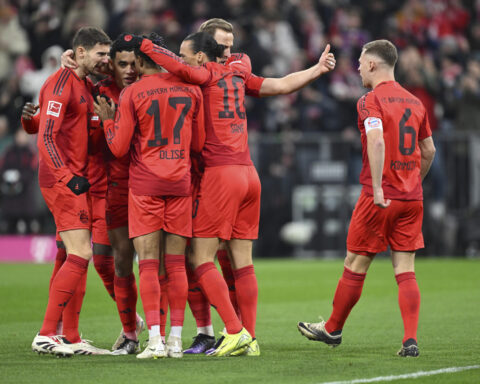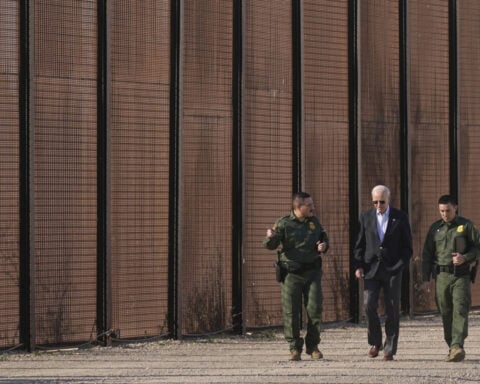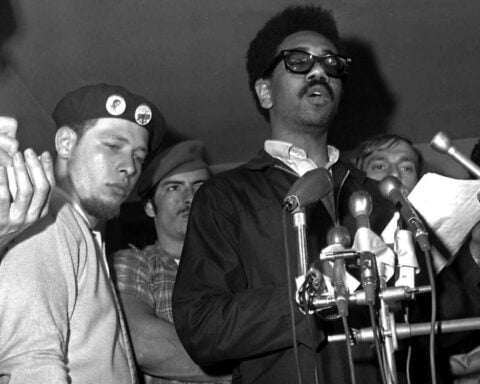By Vivian Sequera and Tibisay Romero
CARACAS/VALENCIA, Venezuela (Reuters) - Sunday's presidential election in Venezuela has attracted a level of voter enthusiasm not seen in at least a decade.
Despite a charged atmosphere marked by arrests of opposition figures and conspiracy accusations, opposition rallies have drawn large crowds - including disillusioned former supporters of President Nicolas Maduro's ruling party.
Maduro, seeking a third term, has sounded a confident note about clinching a victory against what he calls the "extreme right."

The opposition - who boycotted the 2018 election, alleging the vote would not be fair - has said decisions by electoral authorities have been made with the intention of confusing voters and tamping down opposition support.
But challenger Edmundo Gonzalez' campaign marks the first time since 1999, when the late President Hugo Chavez took power, that a political movement besides the Socialist Party has had real momentum and a potential advantage.
Part of the enthusiasm for Gonzalez, a 74-year-old former diplomat, comes from former "Chavistas" who once turned out in droves to support the party of Maduro and his mentor Chavez, according to interviews Reuters carried out at opposition rallies and in cities around the country.
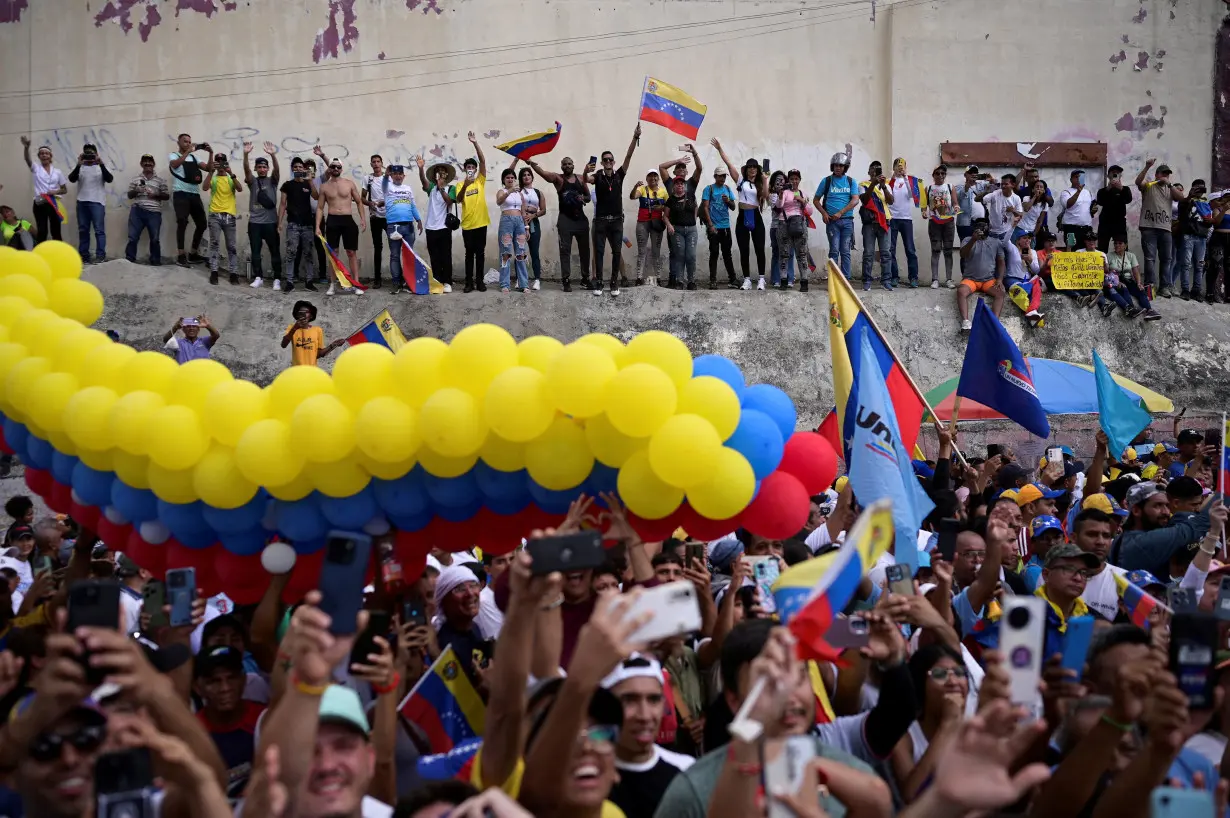
Years of economic crisis and the exodus of more than 7.7 million people have taken their toll, they said.
"I liked Chavismo, what they proposed, that wealth should be shared, that opportunities to get ahead should be given to many, that the most vulnerable would have a chance," said Edgar Gonzalez, 39, as he attended an opposition rally in Valencia, the capital of central Carabobo state.
"But then came this madness," said Gonzalez. He said he lost his accounting job in 2021 when his former company closed and now makes a living doing deliveries on his motorcycle. "I don't regret my past, but I've understood that's not the way."
There is wide support for opposition leader Maria Corina Machado, said Oswaldo Ramirez, director of Caracas consultancy ORC Consultores. Machado resoundingly won a primary last year but is banned from holding public office and has thrown herself into campaigning for Gonzalez.
But there is also "a Chavista discontent that believes the country needs to begin a new path and that the revolution has basically rusted," Ramirez said.
Maduro has loosened currency controls and curbed once sky-high inflation, but the economy remains stymied by a fall in oil income in the OPEC country and enduring sanctions.
He has warned of a "bloodbath" if the opposition wins and has promised a new period of growth that will mean the economy will no longer depend on oil income.
"We've spent 25 years supporting Chavistas with the hope that at some point they were going to straighten out the country's path, but every day is worse," said teacher Marina Perez at the joint Gonzalez-Machado rally in Valencia. Her salary had not increased in two years, she said.
"Now there are two leaders who give us new inspiration," said Perez. "That's what we want: a change."
MOTORBIKES RALLY
Across the country, Gonzalez and Machado have been greeted by cheering crowds, with sometimes tearful attendees often giving them rosaries or other tokens.
In some cases, they have been accompanied by caravans of motorcycles - another possible sign of change in Venezuela.
Motorcycle clubs have long been considered hot-beds of fierce ruling party support. Some were accused of violence against anti-government protesters during major marches in 2014 and 2017.
But many members of motorcycle clubs have recently appeared at opposition rallies, sometimes transporting Machado when her car has been blocked by road closures by security forces.
Gonzalez also recently rode a motorcycle in the western city of Barinas, according to videos published by the opposition.
Motorcyclists were also featured at a Maduro rally this month.
The president has repeatedly offered credit for motorcycle purchases, vital for Venezuelans who have scarce access to wider credit and with the minimum wage equivalent to $3.50 a month.
But that may be too little, too late - even for the most hardcore Chavistas.
"There were government supporters in our group who have been disappointed, because they are personally living the crisis," said Hermes Alvarez, 42, a member of a motorcycle club in western Barquisimeto.
"Socialism has led us to live in decline," said biker Cesar Mendoza, 46, as he attended a Machado rally in Carabobo in early July.
(Reporting by Vivian Sequera in Caracas, Tibisay Romero in Valencia, Keren Torres in Barquisimeto and Mircely Guanipa in Maracay; Writing by Julia Symmes Cobb; Editing by Rosalba O'Brien)

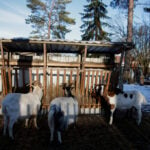 Germany sees meat exports to EU continuing after foot-and-mouth case
Germany sees meat exports to EU continuing after foot-and-mouth case
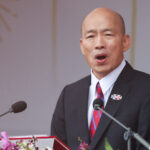 Parliament speaker to lead Taiwan delegation to Trump's inauguration
Parliament speaker to lead Taiwan delegation to Trump's inauguration
 German economy contracted 0.2% in 2024
German economy contracted 0.2% in 2024
 Middle East latest: Palestinian prime minister says Palestinian Authority should run Gaza in future
Middle East latest: Palestinian prime minister says Palestinian Authority should run Gaza in future
 Nokia signs multi-year patent license agreement with Samsung
Nokia signs multi-year patent license agreement with Samsung
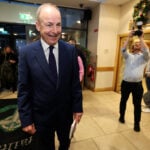 Irish parties secure 'comfortable majority' for new government
Irish parties secure 'comfortable majority' for new government
 Bayern Munich signs US youngster Bajung Darboe from LAFC
Bayern Munich signs US youngster Bajung Darboe from LAFC
 Novak Djokovic breaks a tie with Roger Federer for the most Grand Slam matches in tennis history
Novak Djokovic breaks a tie with Roger Federer for the most Grand Slam matches in tennis history
 China's RedNote: what you need to know about the app TikTok users are flocking to
China's RedNote: what you need to know about the app TikTok users are flocking to
